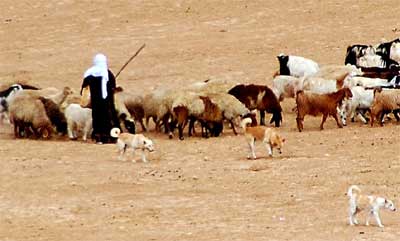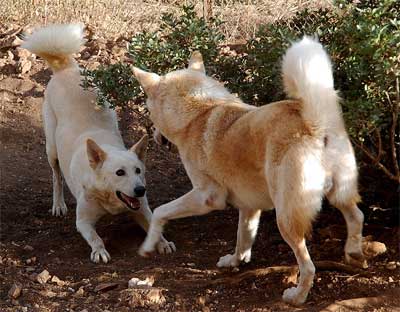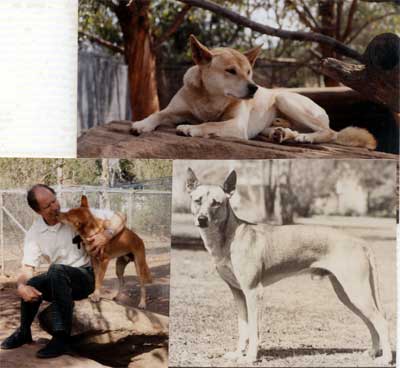I come to this subject from personal memories of long ago, when the followers of Mohammed and the warriors and writers who succeeded and “interpreted” him were called “Mohammedans,” later “Moslems,” and more recently spelled “Muslims.” In latter decades, world travel has broadened my view and deepened my understanding. I have lectured and judged dogs in 30 countries, including some that are officially Muslim. Malaysia, for example, is 62% and Pakistan is 97% Muslim (and less than 1% Christian). As an international dog show judge, I have developed friendships with people in both of these countries, where I judged a number of times.
Contrary to exaggerated claims of those who have not “been there, done that,” not every professed follower of Mohammed is an extremist ready to slit my throat or volunteer as a suicide bomber. Certainly, you would not think that everyone in the West who calls himself a “Christian” goes to church three times a week, or follows all the rules of what he identifies as his religion. Whether re baptism modes, praying to saints, abstaining from alcohol, speaking in tongues, etc. ad infinitum, there is a very wide range of “Christian” doctrines and practices. It’s the same in the nominally Muslim countries. Not only are there different sects, but a wide spectrum of obeisance and obedience to their tenets. I’d like to get the attention of untraveled Westerners and so many others who see only one definition for any word or religion and who have no or only vicarious experience with folks they identify as Muslims. Not only are there different sects, but a wide spectrum of obeisance and obedience to their tenets. I fully understand their feelings.
A perfect example: after judging a couple of shows in Lahore and Karachi, my host—a retired Army Colonel—took me to a large estate near Pakistan’s capital, Islamabad. The family owned a tremendous amount of territory including cropland, forests, orchards, and even a town. The senior family members were strict enough as to observe the religious prohibition of touching or being touched by dogs, but their sons who managed most of their businesses were breeders of Golden Retrievers, as is my friend the Colonel. None of them had any animosity to America or other Westerners, such as we find among the imams and the radicals.
When I was a pre-teen, and World War Two was but a couple years concluded, I had imagined that the next world war would be the dawn of Armageddon, waged by Arabs against “the rest of us.” In those days, the notion of Israel revived as a nation was just starting to exist. What we called Arabs were mostly those tribes that had taken over the territory that we had been taught had been given by God to the descendants of Jacob (renamed Israel) who came to be known as “Jews.” This name derived from the province of Judea, that part of the Promised Land entrusted to Judah, one of the twelve tribes. In those pre-pubescent days, my prediction (almost a vision) was pretty close to what has since transpired.
My previous naïveté about Jews has changed, matured, as a result of encountering many Israelis in the world of dogs: some breeders for show competition, some military trainers for national defense. I guess I had felt—without rational analysis—that somehow Israelis were much more homogeneously orthodox or religious just because they live in what we call “the Holy Land” than were the mundane Jews in the USA whom I had known in college and the workplace. But I learned that in Israel, as well as here, most are not deeply religious. In Israel, Jewishness is mainly a matter of unity, of national citizenship, but in America and elsewhere it is more a matter of cultural or identity separation, like islands in an ocean. In both cases, it is seldom primarily about religion.
I’ve often found the error, common among Americans, of lumping every person in a certain country or community into a single defined category. The international news media—no great fount of wisdom or intellectualism—is prone to describe people in Lebanon and much of the rest of the Middle East as either Muslim, Jewish, or Christian. Their practical definition of “christian” probably should be non-capitalized, as by it they only mean to describe someone not identified as one of the other two categories, whereas my much more narrow definition is someone who has had a change in destiny through a newly personal relationship with God by means of a commitment to Jesus as the only path to eternal life.
A Hindu business owner who went on one of my Sieger Show trips in Germany told me that dog shows seem to be non-existent in Egypt, where she lives. But a large percentage of Egyptians do not have the same anti-dog mentality that is found among the clerics and radicals in Iran, Iraq, and some other extremist societies in the Middle East. And so, she has interaction with other dog owners in that country.
That retired Army Colonel friend of mine in Pakistan wrote that in his country, every city has its host of feral (ownerless, free-roaming) “Pariah Dogs” hunting through the streets for food—mainly, refuse left outside houses. He said that they generally live in packs on the outskirts of a town, or in its waste dumps, or around deserted buildings, and rarely range far in their scavenging. The tail is frequently bushy and may be curled over the back when excited. Usually they are of quite placid disposition and can be tamed out of most of their timid and mistrustful natures, but because of their wariness, they are excellent watchdogs. A considerable range of type (varying by location because of localized inbreeding) can be observed: some similar to the Spitz group, some show closer affinity with the wolf, and others appear to be more similar to the Greyhound style. Where domesticated dogs are kept (even in Muslim Pakistan), interbreeding with the feral Pariah often takes place.
I have seen the nearly identical “look” of pariah dogs all over the world: the Carolina Dog, the Bahamas “Potcake,” more than half a dozen pariah breeds in India, feral dogs in Taiwan, Philippines, other SE Asia, all throughout South America, and elsewhere. I plan to do an article on that “universal type” one of these days.
It is a somewhat trite expression that you have heard: “Travel broadens one” but it is true. My travels around the globe (thanks to my lecture and show-judging invitations) have shown me how round it is, whereas it might have continued to look flat, two-dimensional had I not been blessed with those opportunities. Not only have I studied native dogs around the world, but I’ve also been a close observer of human interactions in the fields of religion and politics. Not all Americans or Europeans or followers of any particular Western religion are the same, and not all Muslims (Sunni, Sufi, others) are the same, either. Each person has his own prejudices, and some of these are well-grounded or understandable, but (from one “who’s been there”) give yourself a chance to get more facts and more understanding.
 |
|
Bedouin Canaan Dogs
|
 |
|
Canaan Dogs – feral breed
|
 |
|
Dingos
aloof adult, friendly pup, tropical male |
 |
|
Thailand Street Dog
|
 |
|
Indian Pariah Dog
|
